*NURSING > QUESTIONS & ANSWERS > Test 4 Practice Questions GOOD LUCK EVERYONE! WE GOT THIS., Questions with answers and rationale (All)
Test 4 Practice Questions GOOD LUCK EVERYONE! WE GOT THIS., Questions with answers and rationale
Document Content and Description Below
Test 4 Practice Questions GOOD LUCK EVERYONE! WE GOT THIS., Questions with answers and rationale A registered nurse arrives at work and is told to "float" to the ICU for the day because the ICU is ... understaffed and needs an additional nurse to care for the clients. The nurse has never worked in the ICU. Which of the following is the most appropriate nursing action? A. refuse to float in the ICU B. call the hospital lawyer C. call the nursing supervisor D. report to the ICU and identify tasks that can be safely performed - Ans-Answer: D Rationale - floating is acceptable and legal practice. The nurse floated to a unit until will be given orientation; be assigned to care for stable patients or those with conditions similar to her training experience. The nurse practice acts are an example of civil law. A. True B. False - Ans-Answer: False Rationale: Nurse practice acts fall under Statutory law The client's right to refuse treatment is an example of _________ laws. - Ans-civil Miss Magu, an 88-year old woman, believes that life should not be prolonged when hope is gone. She has decided that she does not want extraordinary measures taken when her life is at its end. Because she feels this way, she has talked with her daughter about her desires, completing a living will and left directions with her physician. This is an example of: A. Affirming a value B. Choosing a value C. Prizing a value D. Reflecting a value - Ans-C. Prizing a value As an advocate for the client, the nurse must make sure that "safe, effective care" is given in conformity with the A. Nurse Practice Act (NPA). B. American Nursing Association (ANA) C. National Council for Lisensure Examinations D. State Board of Licensure - Ans-A. Nurse Practice Act (NPA). The nurse puts a restraint jacket on a client without the client's permission and without the physicians order. The nurse may be guilty of assault. A. True B. False - Ans-B. False Rationale: Battery is physical in nature. Assault is a threat. The nurse is obligated to follow a physicians order unless: A. The order is a verbal order B. The order is illegible C. The order has not been transcribed D. The order is an error, violates hospital policy, or would be detrimental to the client - Ans-D. The order is an error, violates hospital policy, or would be detrimental to the client. The nurse notes that an advance directive is in the client's medical record. Which of the following statements represents the best description of guidelines a nurse would follow in this case? A. A durable power of attorney for health care is invoked only when the client has a terminal condition or is in a persistent vegetative state B. A living will allows an appointed person to make health care decisions when the client is in an incapacitated state. C. A living will is invoked only when the client has a terminal condition or is in a persistent vegetative state. D. The client cannot make changes in the advance directive once the client is admitted into the hospital. - Ans-C. A living will is invoked only when the client has a terminal condition or is in a persistent vegetative state. Rationale: A living will directs the client's healthcare in the event of a terminal illness or condition. A durable power of attorney is invoked when the client is no longer able to make decisions on his or her own behalf. The client may change an advance directive at any time. A student nurse who is employed as a nursing assistant may perform any functions that she taught in school. A. True B. False - Ans-B. False Rationale: You may only perform functions that you are licensed to perform while on the job. A primary care provider's orders indicated that a surgical consent form needs to be signed. Since the nurse was not present when the primary care provider discussed the surgical procedure, which statement "best" illustrates the nurse fulfilling the client advocate role? 1. "The doctor has asked that you sign the consent form." 2. "Do you have any questions about the procedure?" 3. "What were you told about the procedure you are going to have?" 4. "Remember that you can change your mind and cancel the procedure." - Ans-Answer: #3 Rationale: This is the best answer because the nurse is assessing the client's level of knowledge as a result of the discussion with the primary care provider. Based on this assessment, the nurse may initiate other actions (call the primary care provider if the client has any questions) Although the client refused the procedure, the nurse insisted and inserted a nasogastric tube in the right nostril. The administrator of the hospital decides to settle the lawsuit because the nurse is most likely to be found guilty of which of the following? 1. An unintentional tort 2. Assault 3. Invasion of Privacy 4. Battery - Ans-Answer #4 Rationale: Battery is the willful touching of a person without permission. Another name for an unintentional tort is malpractice. This situation is an intentional tort because the nurse executed the act on purpose. A nurse discovers that a primary care provider has prescribed an unusually large dosage of a medication. Which is the most appropriate action? 1. Administer the medication 2. Notify the prescriber 3. Call the pharmacist. 4. Refuse to administer the medication. - Ans-Answer #2 Rationale: The nurse should call the person who wrote the order for clarification. Administering the medication is incorrect because knowing the dose is outside the normal range and not questioning it could lead to client harm and liability for the nurse. Nurses agree to be advocates for their patients. Practice of advocacy calls for the nurse to: A. Seek out the nursing supervisor in conflicting situations B. Work to understand the law as it applies to the client's clinical condition. C. Assess the client's point of view and prepare to articulate this point of view. D. Document all clinical changes in the medical record in a timely manner. - Ans-C. Assess the client's point of view and prepare to articulate this point of view. Rationale: Nurses strengthen their ability to advocate for a client when nurses are able to identify personal values and then accurately identify the values of the client and articulate the client's point of view. A primary care provider prescribes on tablet, but the nurse accidentally administers two. After notifying the primary care provider, the nurse monitors the client carefully for untoward effects of which there are none. Is the client likely to be successful in suing the nurse for malpractice? 1. No, the client was not harmed 2.No, the nurse notified the primary care provider 3. Yes, a breach of duty exists 4. Yes, foreseeability is present - Ans-A [Show More]
Last updated: 2 years ago
Preview 1 out of 89 pages
.png)
Buy this document to get the full access instantly
Instant Download Access after purchase
Buy NowInstant download
We Accept:

Reviews( 0 )
$11.00
Can't find what you want? Try our AI powered Search
Document information
Connected school, study & course
About the document
Uploaded On
Jun 18, 2022
Number of pages
89
Written in
Additional information
This document has been written for:
Uploaded
Jun 18, 2022
Downloads
0
Views
124

.png)

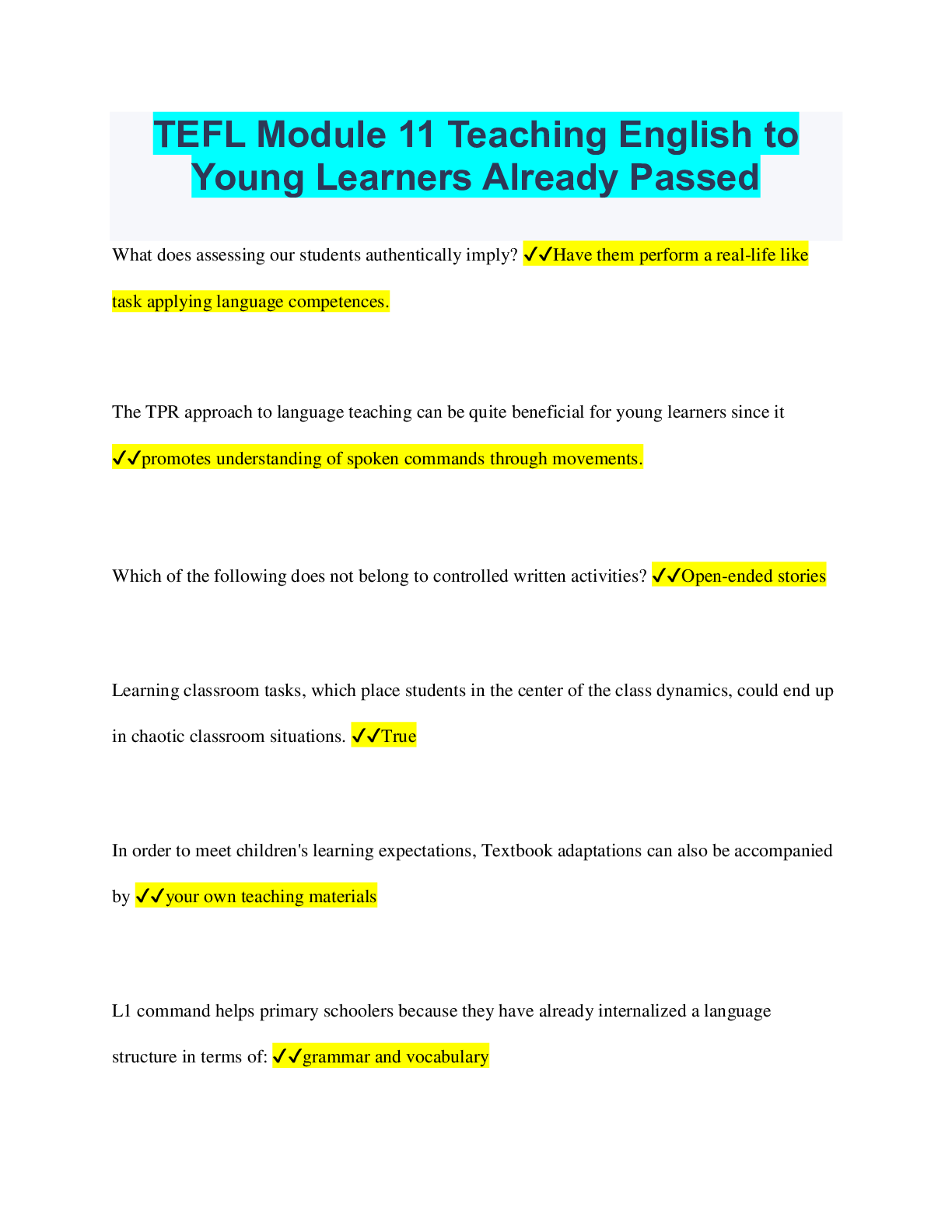
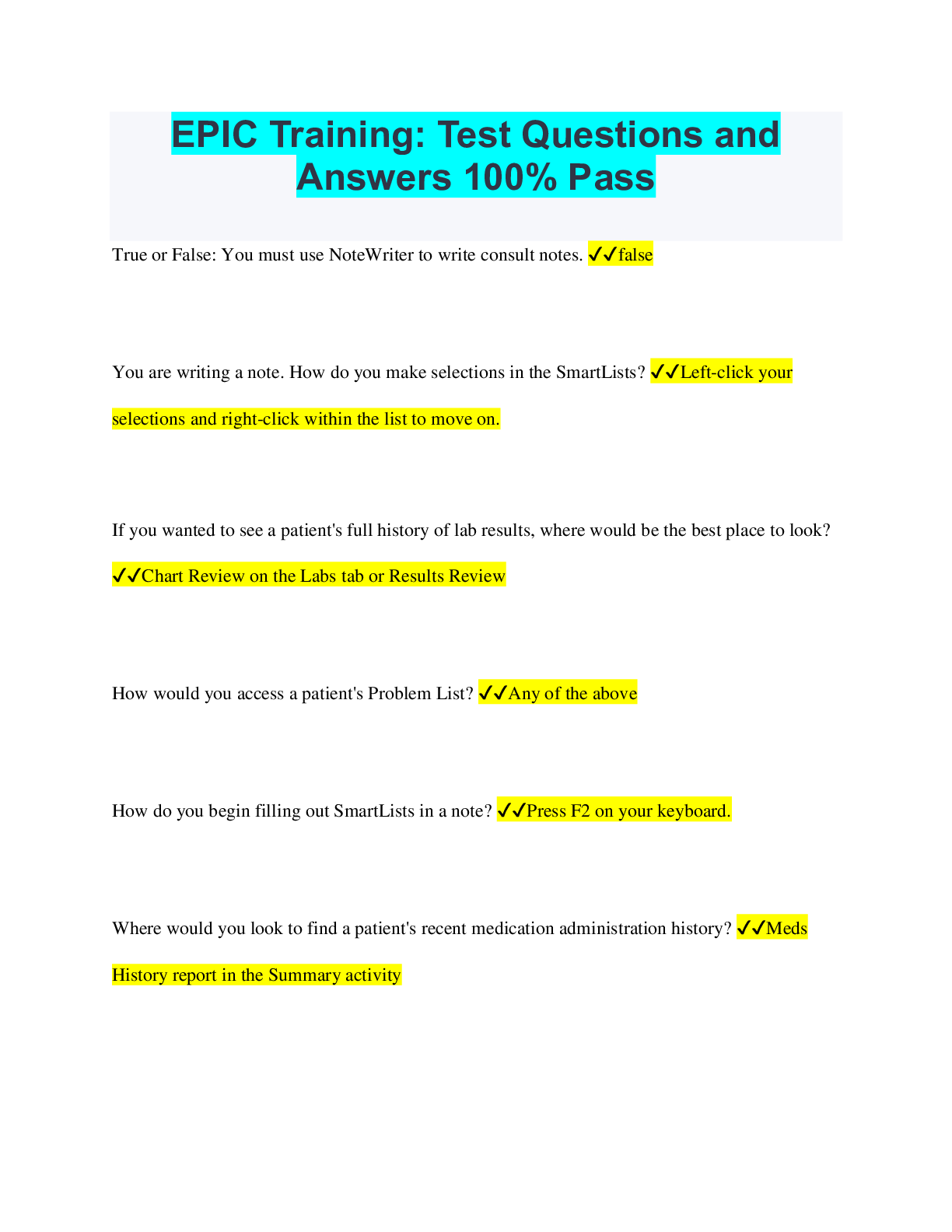

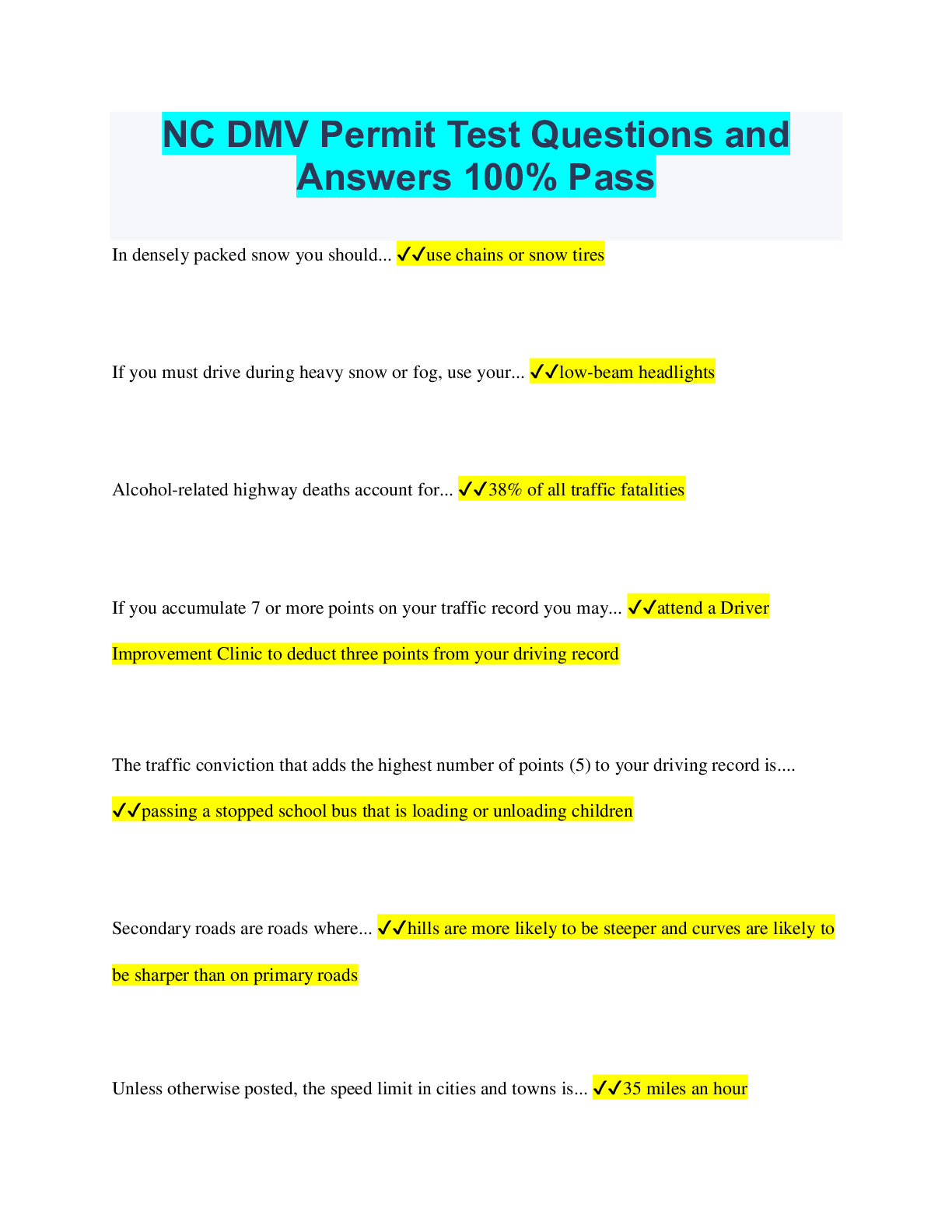
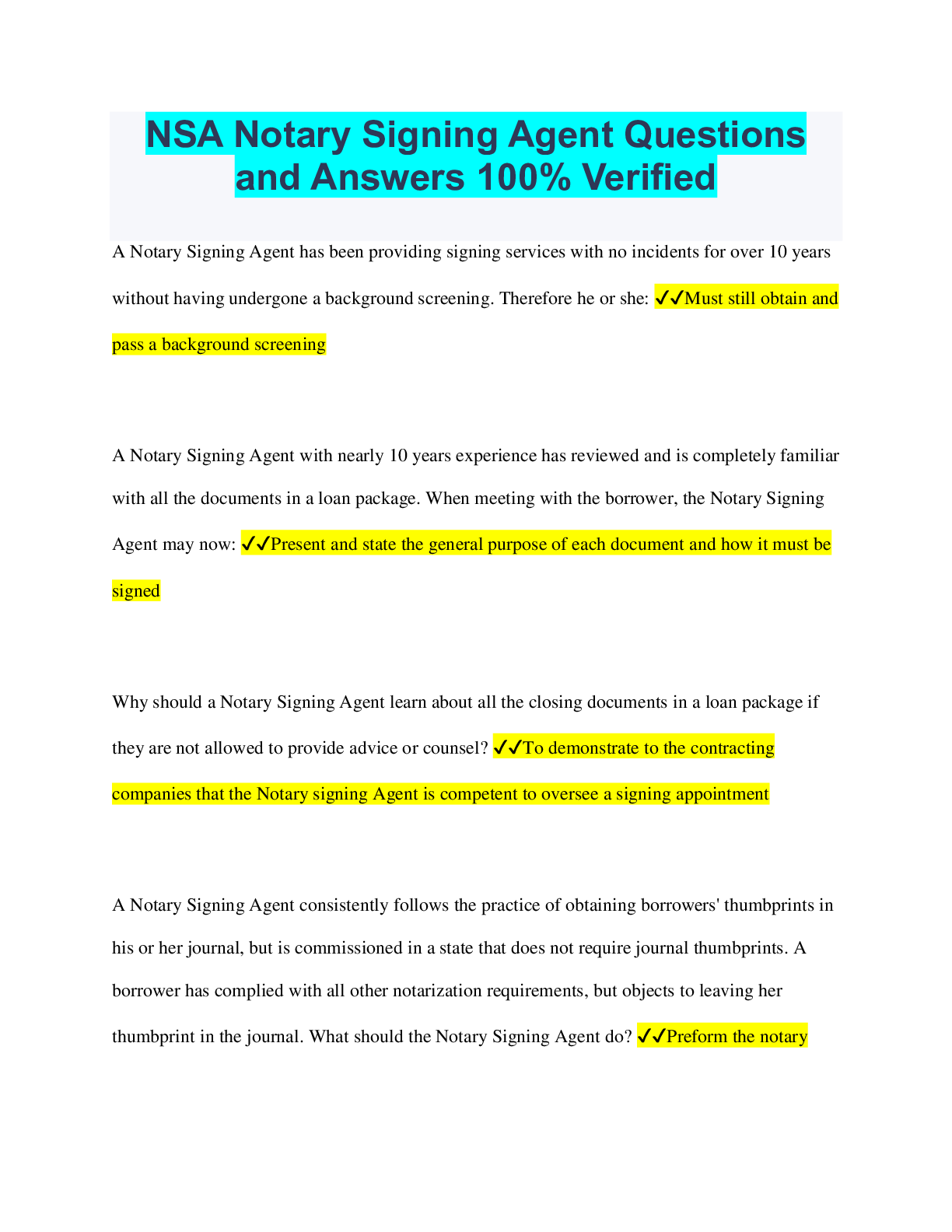
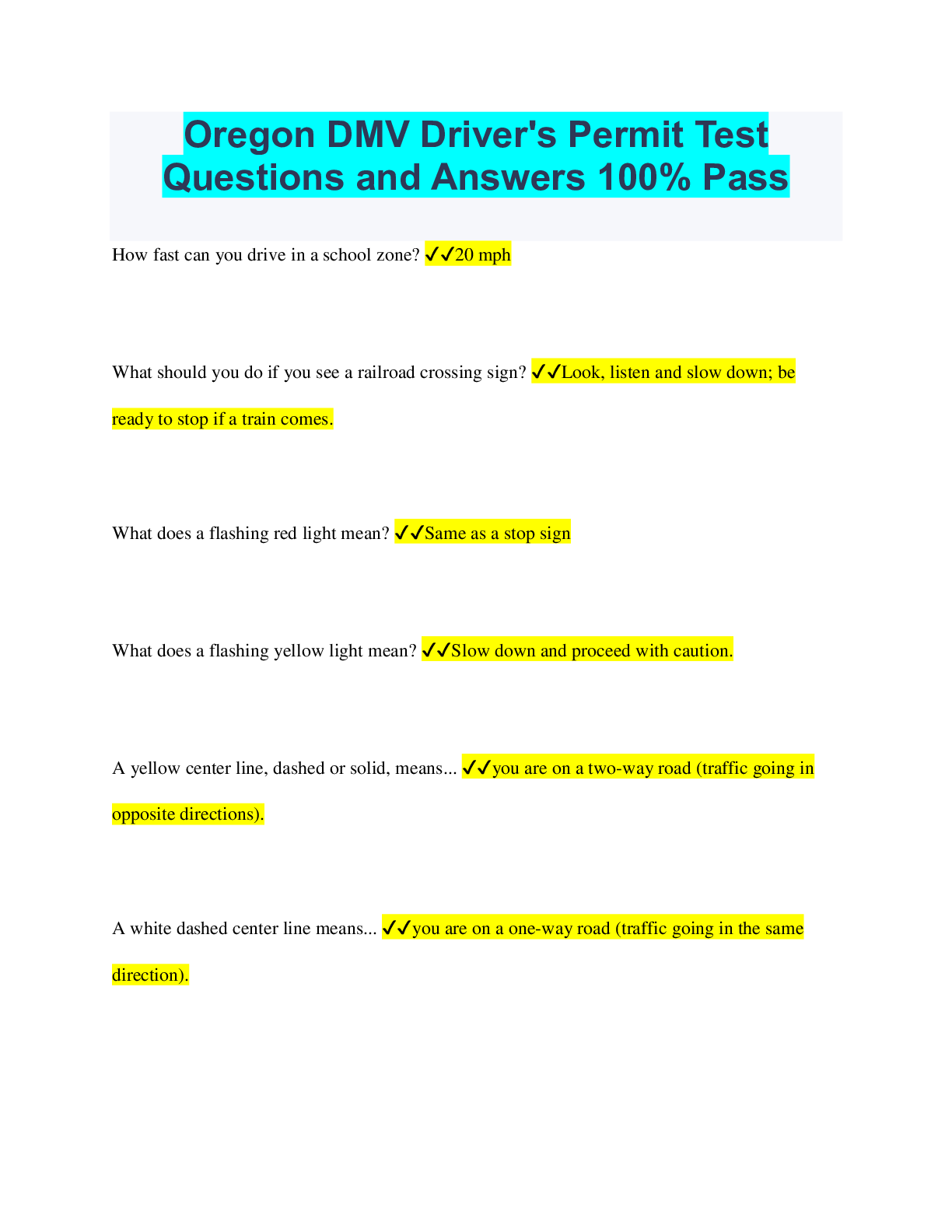
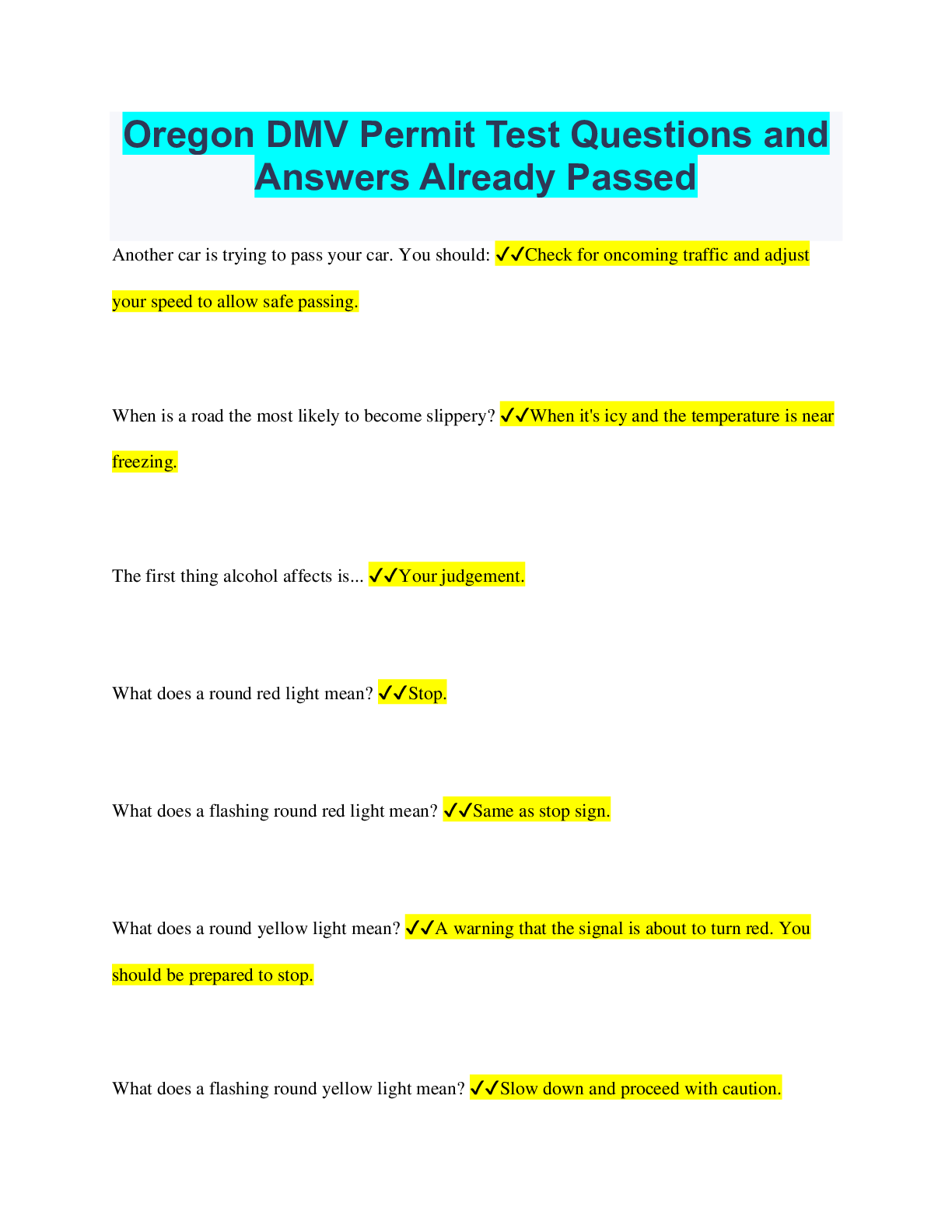
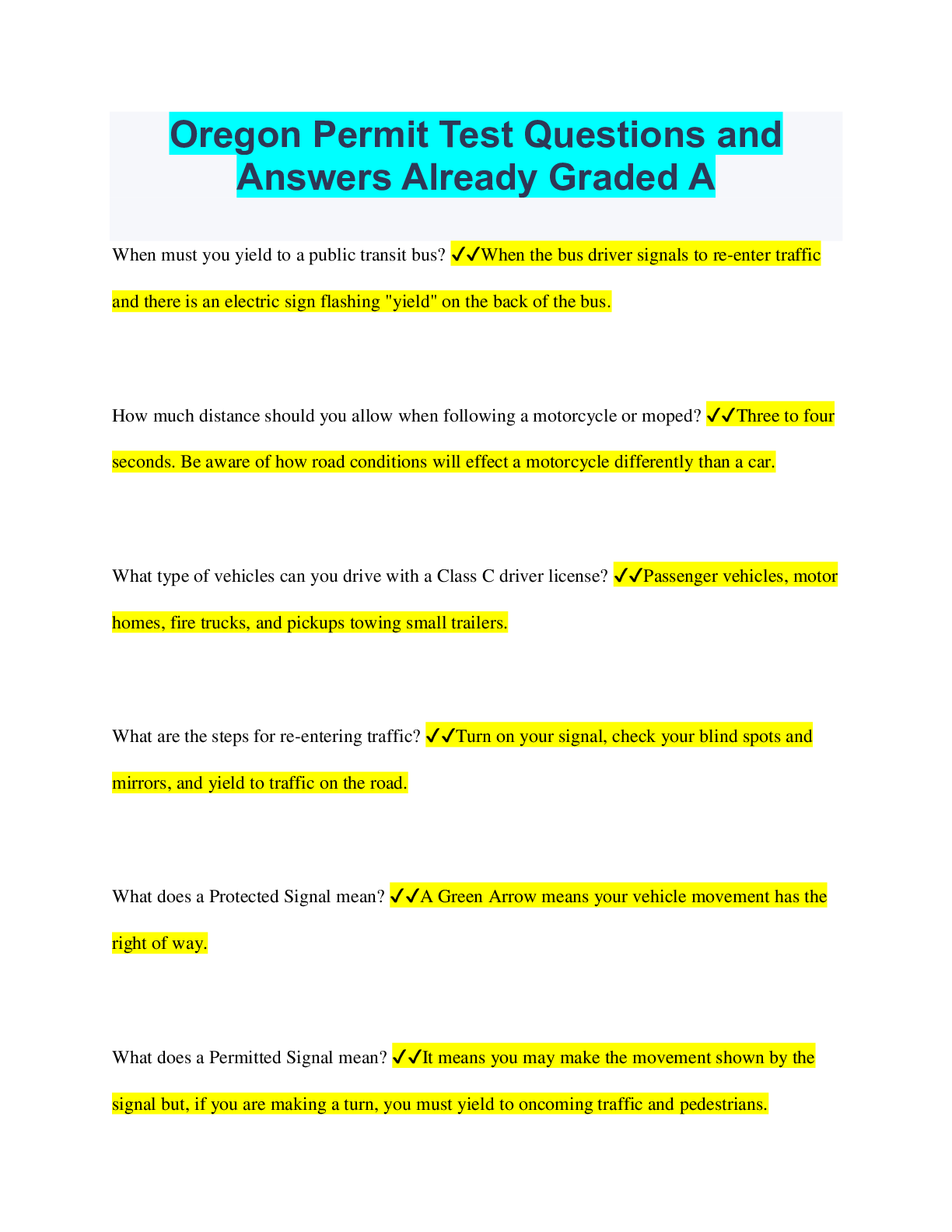
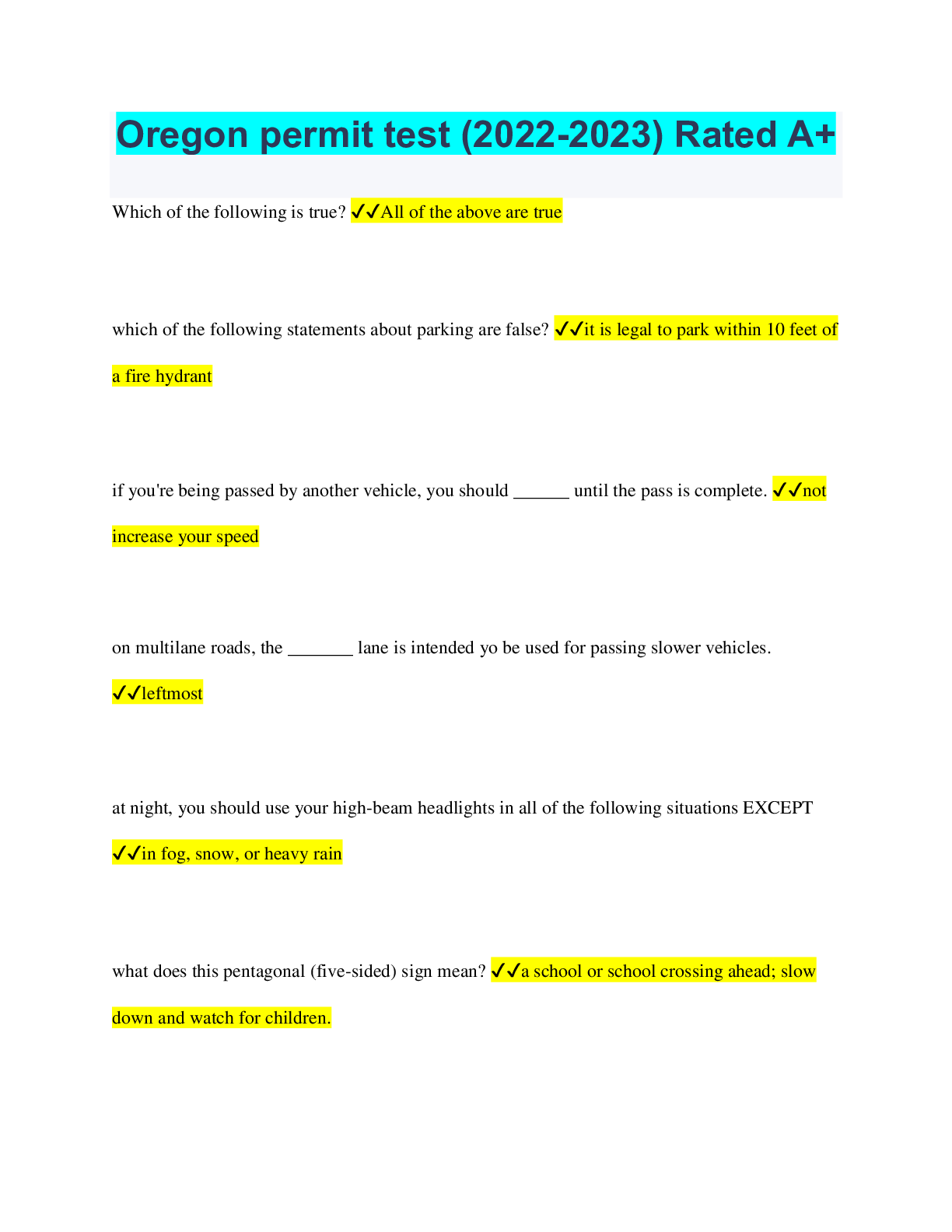
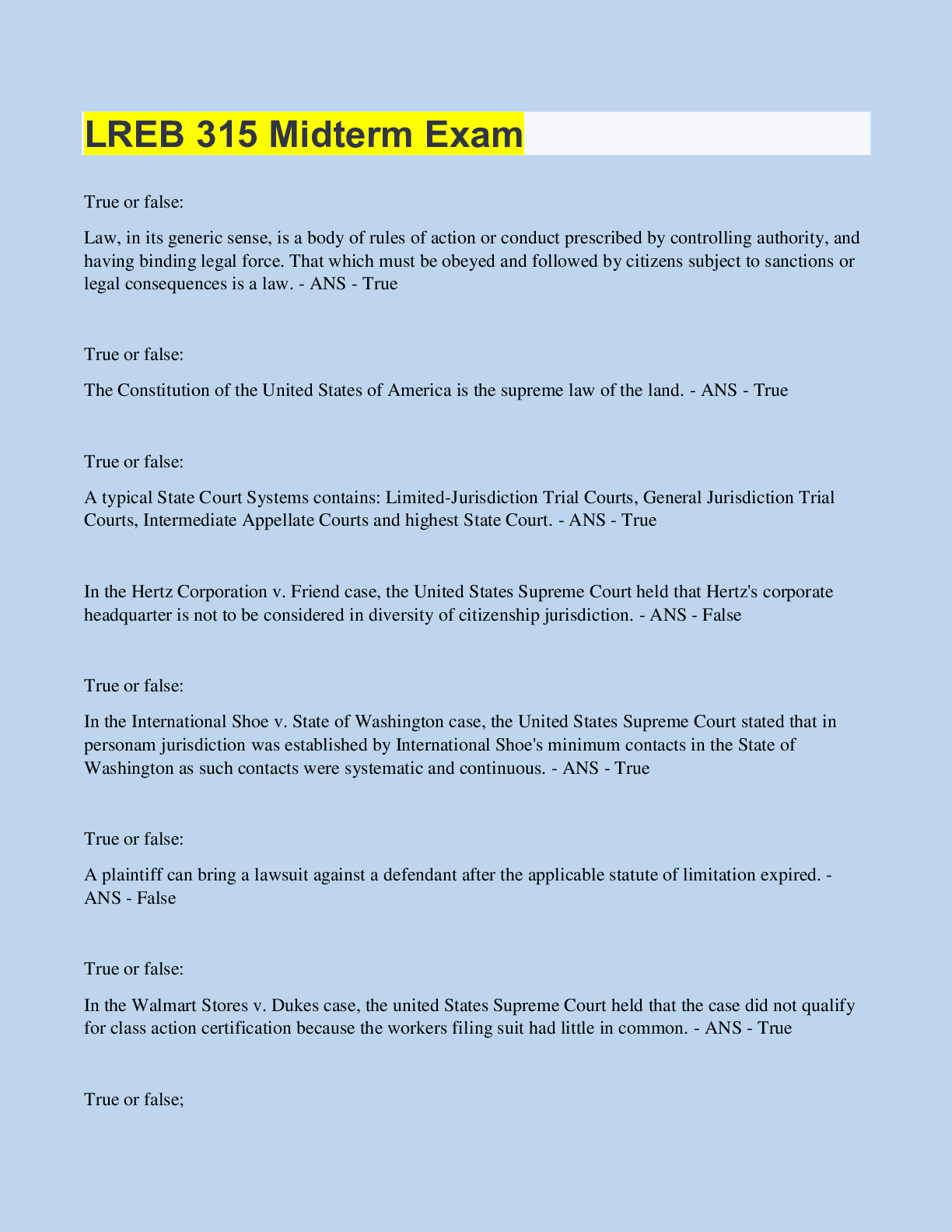
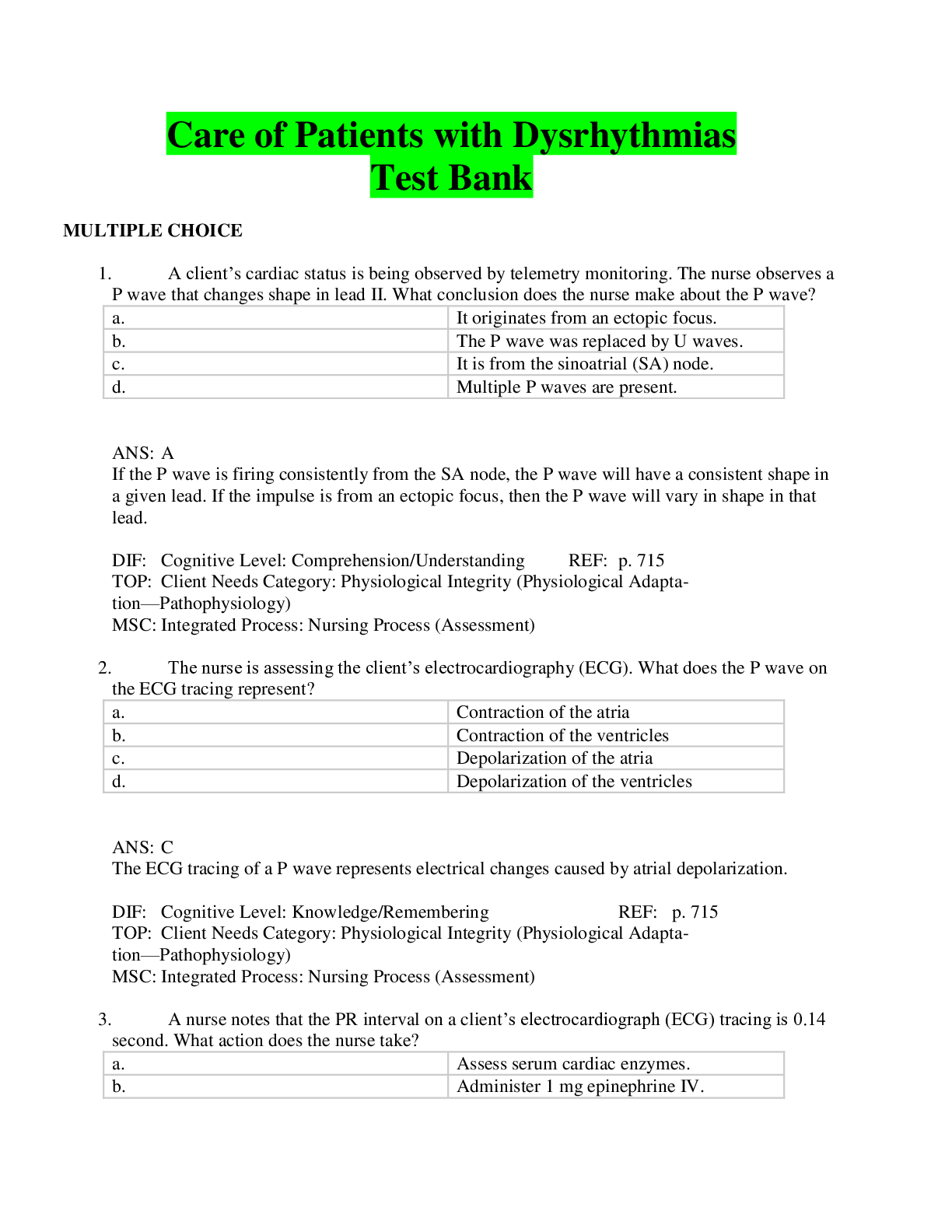
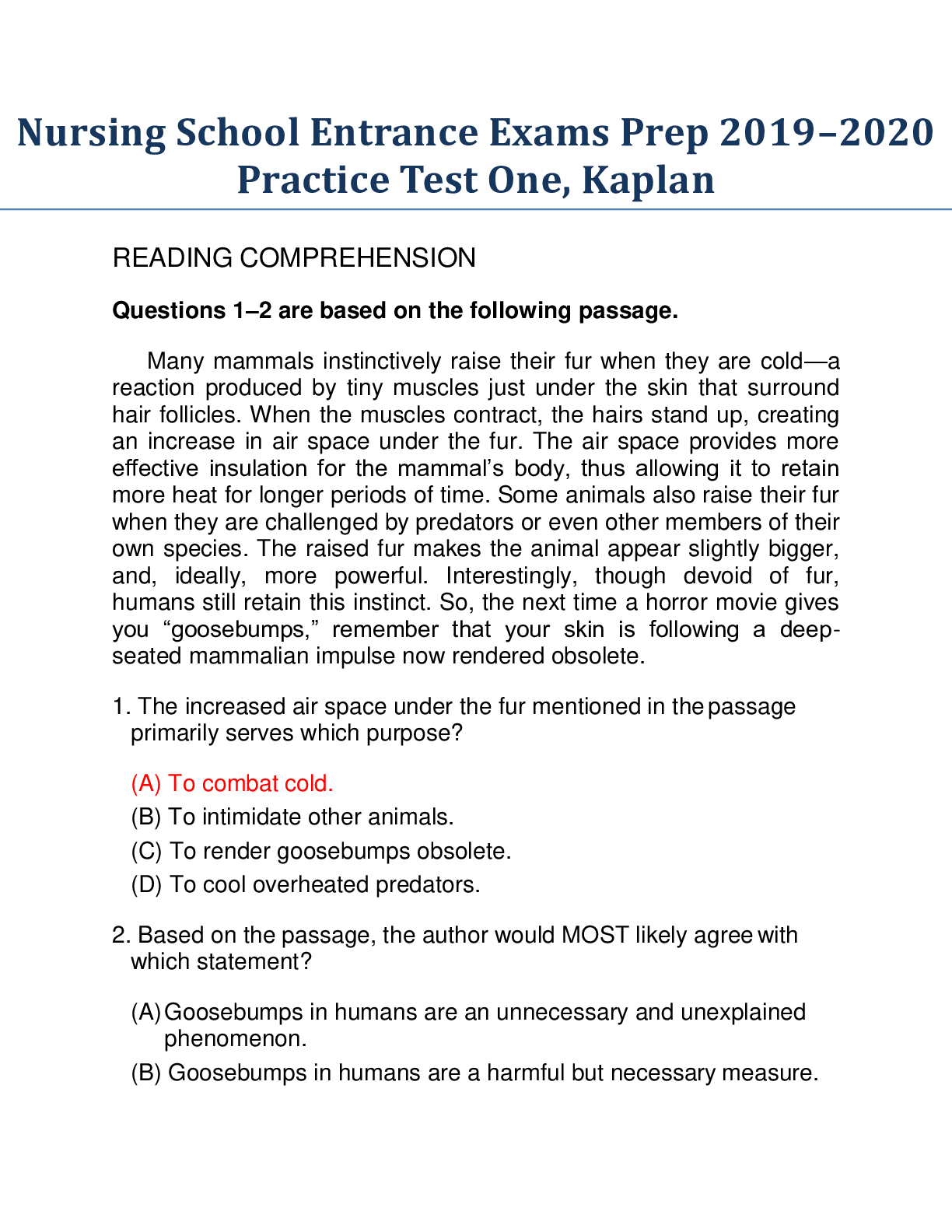


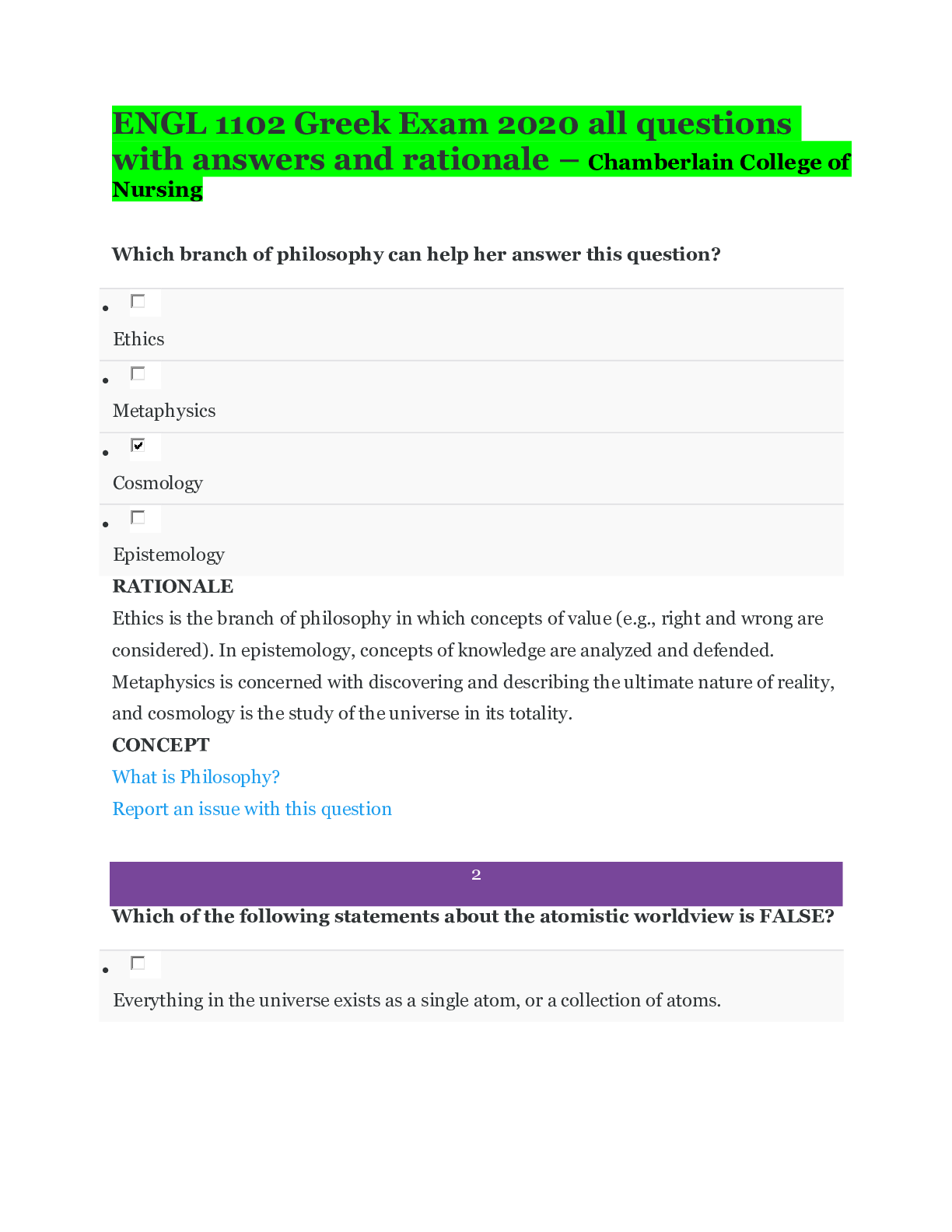
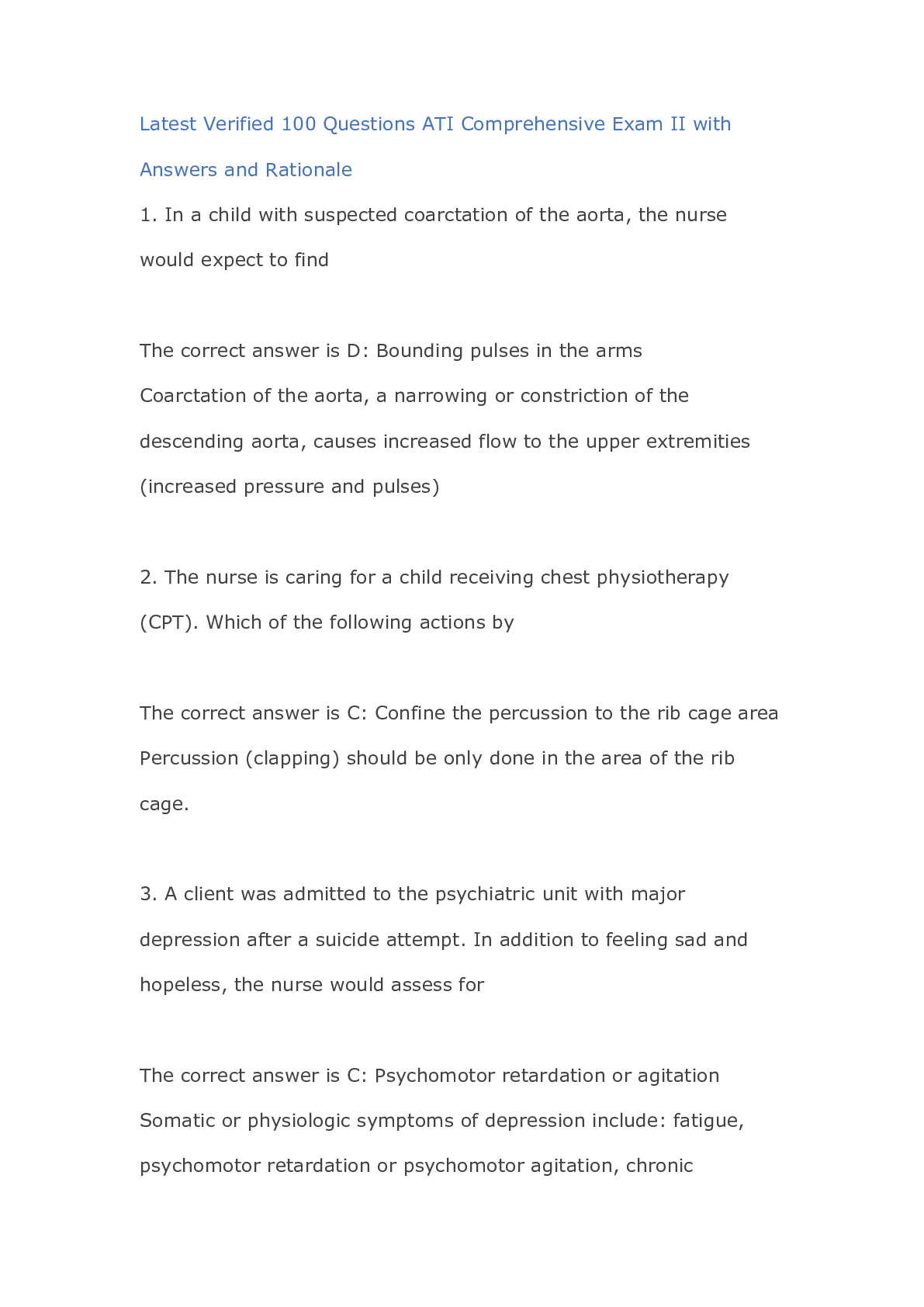


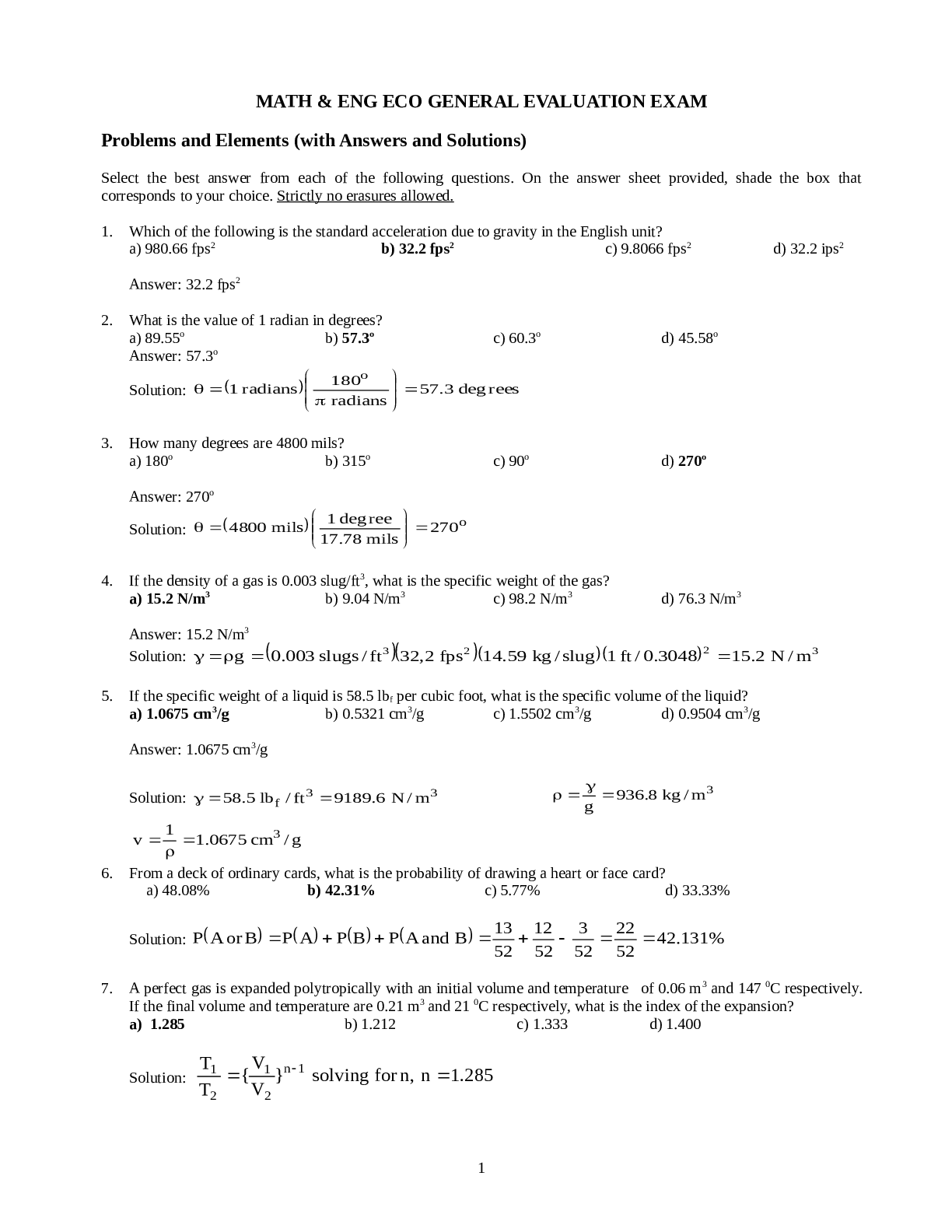
 Revised Exam Prep Guide.png)

